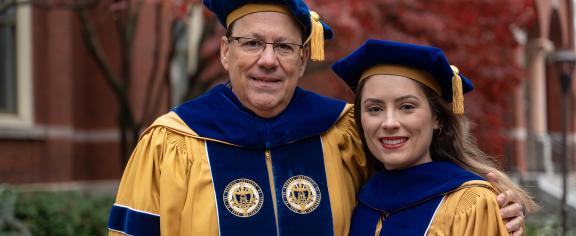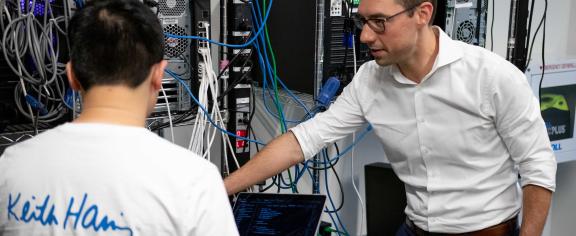2026-01-05
This is the Institute’s best ranking in the National Science Foundation’s annual survey.
2025-12-16
Studying how mice see has helped researchers discover unprecedented details about how individual brain cells communicate and work together to create a mental picture of the visual world.
2025-12-12
Instead of searching for a single molecule or structure that proves the presence of biology, researchers attempted to classify how likely mixtures of compounds preserved in rocks and meteorites were to contain traces of life by examining the full chemical
2025-12-10
Pre-owned options are becoming increasingly viable, thanks in part to laws and policies that encourage recycling and reuse of devices that might previously have been thrown away.
2025-12-10
When Sophia Mavris crosses the stage during one of Georgia Tech’s three Fall 2025 graduation ceremonies, she won’t be the only member of her family in regalia.
2025-12-03
With the help of a contract award for up to $12 million from ARPA-H, a team of researchers led by the School of Cybersecurity and Privacy at will begin developing an advanced cybersecurity platform to protect hospitals.
2025-12-03
Modern manufacturing blends AI, automation, and sustainability to create meaningful careers and economic resilience.
2025-12-03
Modern manufacturing blends AI, automation, and sustainability to create meaningful careers and economic resilience.
2025-12-02
Tariffs, shipping delays, and rising costs are squeezing toy makers—and parents are scrambling to find gifts, as Georgia Tech experts weigh in on the disruptions.
2025-12-02
Modern manufacturing blends AI, automation, and sustainability to create meaningful careers and economic resilience.







